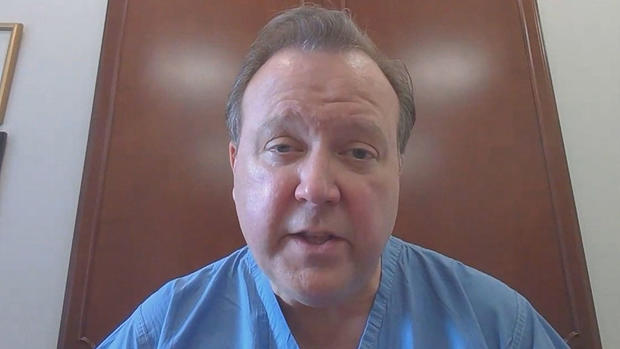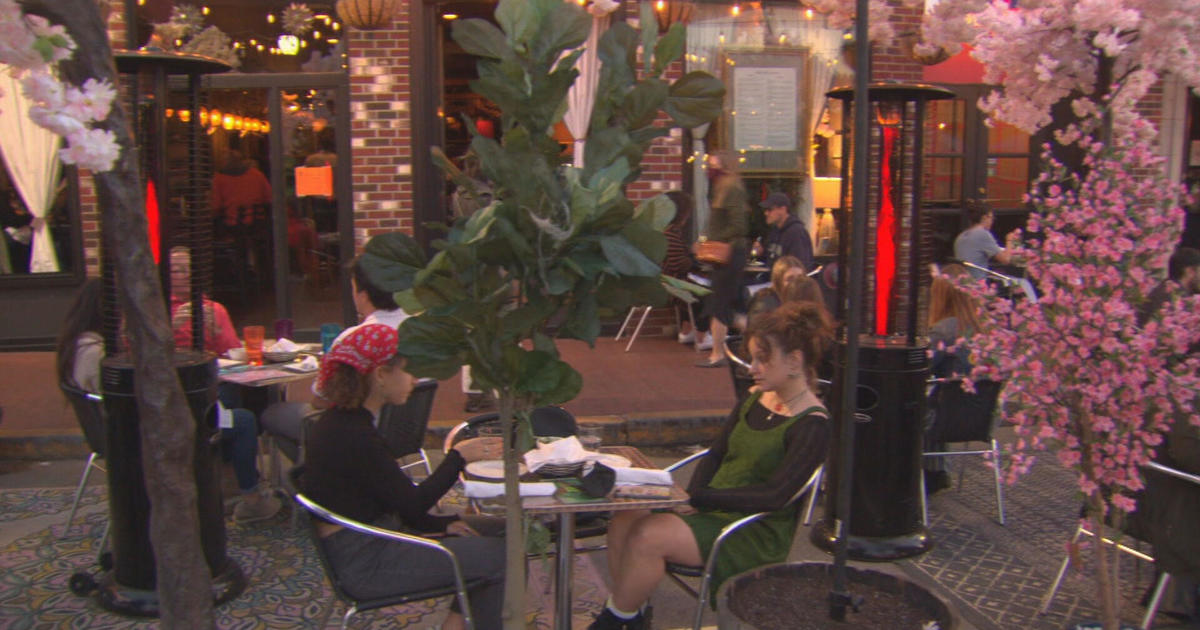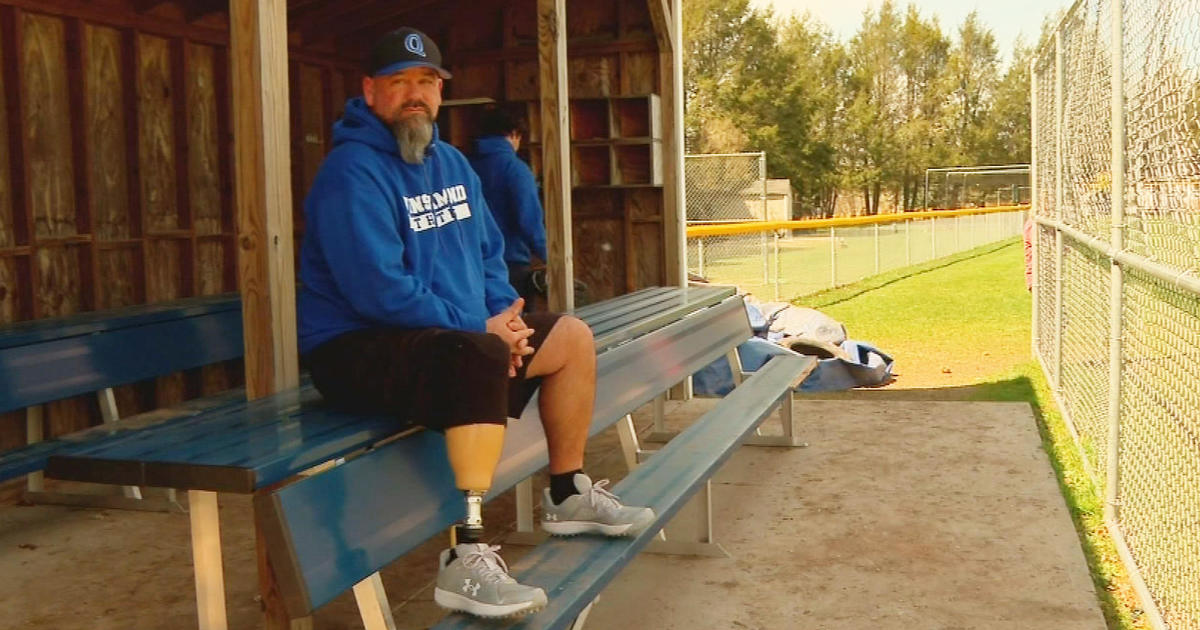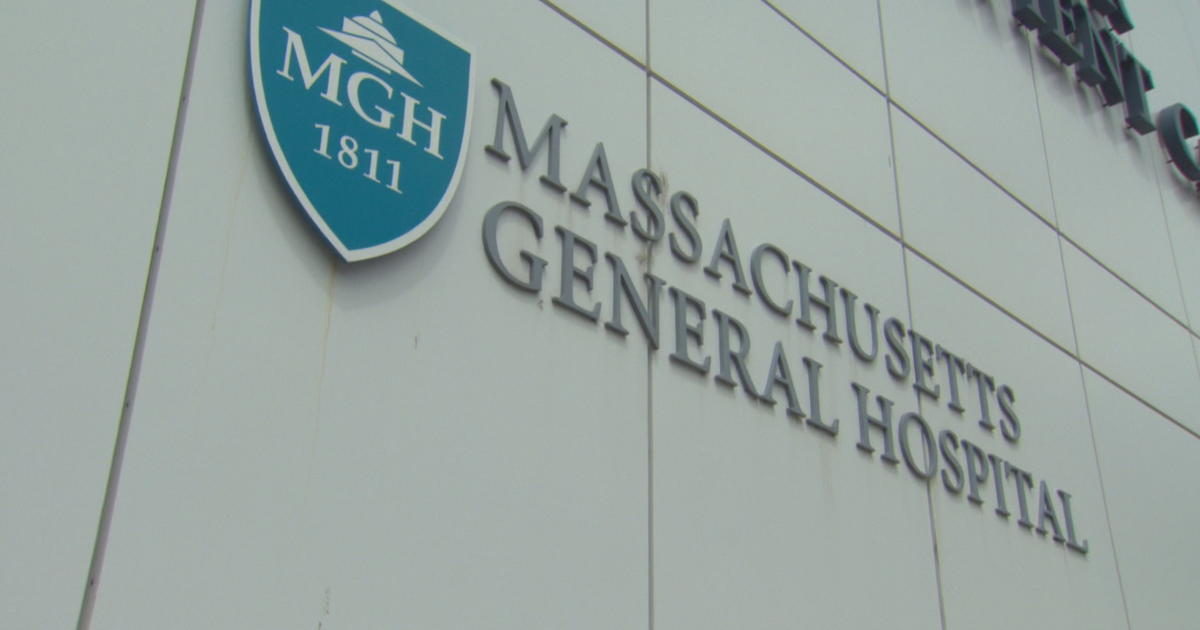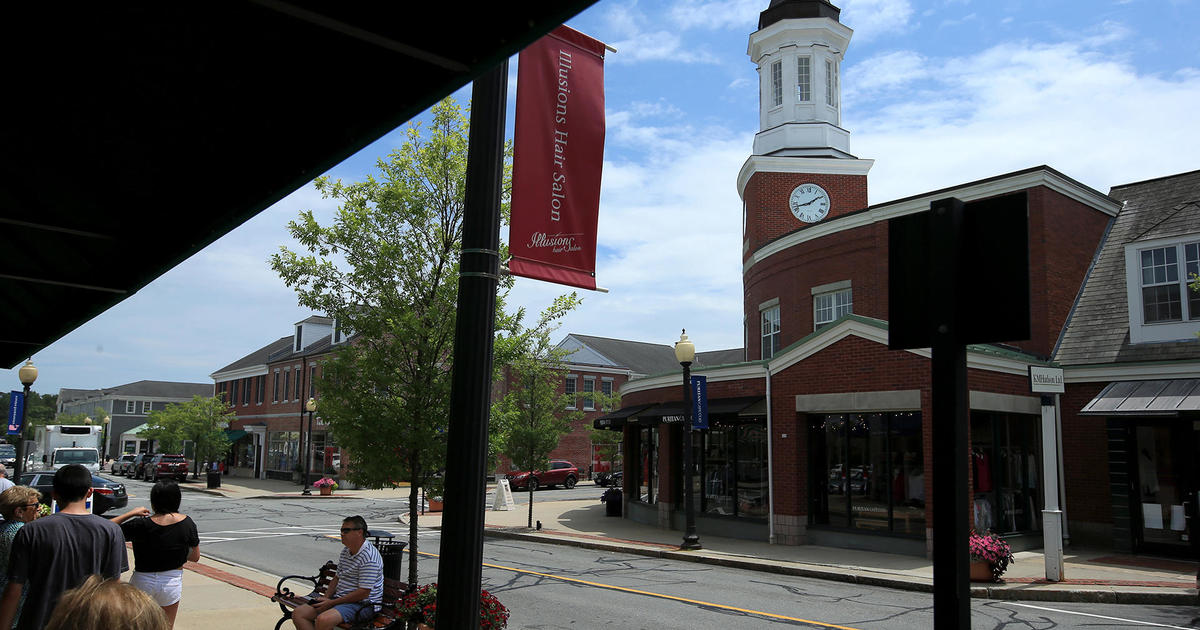'A Lot Of Virus In The Community': How Hospital System Is Coping With COVID-19
BOSTON (CBS) - Dr. Paul Biddinger is the Director of Emergency Preparedness at Partners HealthCare. He sat down with WBZ-TV's Louisa Moller to discuss how the hospital system is coping with COVID-19.
Louisa Moller: How are you doing?
Dr. Biddinger: "We are doing OK. But I think we still are all aware that we are on the ascending part of the curve and even tougher times are unfortunately probably ahead."
"There have really been extraordinary, extraordinary examples of staff showing up, teaching one another as staff have redeployed to different areas of the hospital."
"People are concerned, they're afraid of what's happening in the community and certainly, they're tired."
"We didn't expect this much transmission in the community this fast which I think really has to do with the characteristics of the virus and how much asymptomatic transmission there is meaning there's just a lot of virus in the community."
Moller: Do you feel like your hospitals are in control of this?
Dr. Biddinger: "Everything seems to be coming at us at least as fast or faster than we had expected."
Moller: Do you have enough personal protective equipment for your staff such as N95 masks?
Dr. Biddinger: "We are currently cautiously optimistic that we have what we will need to get through given our utilization, given what we are projecting."
Moller: Do you have enough ventilators?
Dr. Biddinger: "We have identified every possible ventilator whether that's a traditional ventilator or a transport ventilator or an anesthesia machine typically used in the operating room and we will mobilize every resource we can. We've also been trying to purchase an additional 200 ventilators for our enterprise to help us meet our projections so the numbers are tight and it really depends on exactly what we end up seeing."
"I would say we believe we are about on target with what we have but there's really no safety margin and that has us extremely concerned."
Moller: There have been a lot of healthcare workers who have tested positive for COVID-19. Do you think that is happening in the hospital environment or through community spread?
Dr. Biddinger: "A little bit less than 10 percent of our health care workers that we test are positive for COVID and that compares with 11 percent in the Commonwealth so we are actually slightly below the general population which is great."
Moller: Do health care workers have to quarantine?
Dr. Biddinger: "If the health care worker is not wearing the eye protection, mask, gown, gloves and they come in contact with a COVID positive or COVID suspect patient we do count that as a potential exposure."
"If someone has unprotected exposure but is asymptomatic with a mask and certain work restrictions they are allowed to continue but again this is reflective of how much COVID exposure there is in the community."
"Starting this week, we're having every single health care worker who comes into work actively attest at the beginning of every single shift that they have no symptoms."
Moller: Are you having to make decisions about who you treat first for COVID-19?
Dr. Biddinger: "There's actually a wealth of literature and planning resources from the National Academies of Medicine, from the ethics literature that talk about how best we can make sure that we use our resources to save the most lives the most fairly, the most ethically, and that's definitely a literature we're definitely carefully aware of."
Moller: At this point, do you have a profile for what your most serious COVID-19 patients look like?
Dr. Biddinger: "More patients who are older are at higher risk of severe illness."
"However, as is also been described, we have relatively young, healthy, people with critical illness as well."
Moller: How many ICU beds do you have?
Dr. Biddinger: "We have about 150 ICU beds within Mass General and we currently have plans to create 300 total critical care spaces."
Moller: Is the rest of the medical system feeling a strain because of COVID-19?
Dr. Biddinger: "Certainly every part of the medical system feels under strain given what's happening but thankfully the essential medical services we're asked to provide for people who have heart attacks or strokes or appendicitis or other processes, we're still absolutely delivering all the essential medical services that are asked of us."
Moller: Are you considering accepting early medical school graduates?
Dr. Biddinger: "Right now that isn't something that we've needed to employ but we're certainly paying attention to all of the options that would be there for early graduates that would be granted licenses by the state."
Moller: Do you have enough specialists to operate ventilators?
Dr. Biddinger: "Respiratory therapists are in somewhat short supply across the whole Commonwealth. We think that we have enough respiratory therapists."
Moller: Are your health care workers performing COVID-19 tests as they meet patients and are there enough tests?
Dr. Biddinger: "There have been really amazing efforts to increase testing capacity for people in the Emergency Department who need to be admitted, for people in the hospital who develop symptoms, and definitely for the health care workforce so that we know who could possibly have COVID."
Moller: What keeps you up at night?
Dr. Biddinger: "It's impossible not to see what's happening in New York, what has already happened in Italy or China or other places in the world and not be pretty worried."
"It's the magnitude of the challenge that is unknowable until we are at the peak or past the peak that I think has us all concerned."
